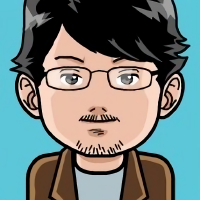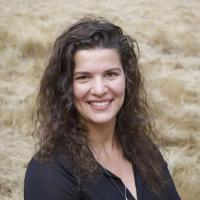00:00:07.759
My name is Bernard Banta from Nairobi, Kenya. That’s my Twitter handle if you’d like to mention me.
00:00:13.240
I was thinking, Twitter has changed its name to X, right? So, we used to say tweeting. Now that the company is called X, what do people say? Have you thought about that?
00:00:26.960
Oh, you say Xing! Okay, let's continue.
00:00:39.360
I currently work at a company called Fin Plus Group. It’s a technology software company based in Nairobi where we build software for financial institutions. We help financial institutions focus on their core problem, which is providing banking services to their customers, while we handle the technology for them.
00:01:06.240
Instead of financial institutions worrying about hiring software engineers or looking for software from different vendors, they can come to us, and we provide everything. This allows everyone to focus on what they do best.
00:01:29.439
We focus on software as a service, providing white-label solutions that can be customized according to their needs. Most of our customers are in Southern and East Africa, and we are continuing to grow.
00:01:54.960
I also run the African Ruby Community, which we started around three years ago, before and during COVID, around 2019. We have several chapters in places like Nairobi, Kenya, Uganda, Tanzania, and Rwanda, and we are continuously growing. Our goal is to connect the entire continent of Africa and create one large community.
00:02:25.599
If you're interested, please visit our website later. Here are some photos from our meetups. This year was our first Ruby conference, which took place in 2015. We’ve held several conferences since then, up until 2019 when COVID disrupted our events.
00:02:55.640
We're planning to have another conference next year, and I'm curious if any of you can recognize some people from these past events. This photo is from our conference in 2018 at Rara University.
00:03:26.360
My life mainly revolves around community-building because I believe in connecting with people. It also revolves around entrepreneurship, building companies, and developing teams. When I'm not doing those things, I enjoy running. I’ve participated in several marathons, and I also enjoy motorcycle off-roading.
00:04:09.879
I enjoy unwinding in the mountains, and recently, I’ve taken up metal and wood DIY projects at home. It’s fun to build things for my family and kids, and they learn so much from it.
00:04:57.840
How many people here have visited Africa? Raise your hands. I see less than five people! What about those who have visited Nairobi? Ah, nice! A few more.
00:05:26.919
So, as I mentioned, I'm from Nairobi, Kenya, a country in Africa. For those who don’t know much about it, Africa has more than 52 countries and is the largest continent in the world. Kenya is located on the eastern side of Africa, and Nairobi is its capital.
00:06:09.599
If you visit Nairobi, you might see animals roaming around. It’s a joke, but seriously, we have a national park in the city that spans about 117 square kilometers, making Nairobi the only city in the world with a national park. Within minutes, you can do game drives to see different animals, including the big five: elephant, rhino, buffalo, lion, and others.
00:06:51.600
You might encounter animals roaming around as well. Here are some photos of the city behind me. [Slide of a lion]. So, for those who enjoy wildlife, the next time we announce a Ruby conference, I urge you to grab your tickets quickly—it’s a great experience. Nairobi has many national parks where you can witness some of the greatest wonders of the world, including the wildebeest migrations.
00:07:49.639
But today, I’m not here to talk about Nairobi or the animals; I’m here to discuss breaking barriers and building innovative tech to empower the unbanked. According to the World Bank, in 2022, there were approximately 1.4 billion adults who are unbanked or financially excluded. These individuals do not have bank accounts or access to financial services.
00:08:34.600
It's perplexing to think that in a world where technology is advancing rapidly, we still have 1.4 billion adults who are unbanked.
00:09:08.120
These individuals are often the hardest to reach, and they are more likely to be women, poorer, less educated, and living in remote rural areas. To truly grasp the significance of the number 1.4 billion, let’s put it into perspective.
00:09:34.600
For example, Twitter, now known as X, has around 528 million users, with about 330 million of them being active. China has a population of approximately 1.4 billion, similar to India. In comparison, Facebook has around 2.9 billion users.
00:10:52.160
The magnitude of 1.4 billion adults who are financially excluded highlights a critical issue, particularly considering how being banked plays a significant role in economic growth and education.
00:12:09.600
Let’s explore the challenges faced by those who are unbanked. They have limited access to banking infrastructure, meaning they cannot easily access ATMs or bank branches.
00:13:00.120
Additionally, many low-income earners have very low digital literacy, which contributes to the problem. They often find transaction fees prohibitively high, leading to further exclusion, and the poor infrastructure in their remote areas makes it expensive and cumbersome to travel to access financial services.
00:14:03.480
Connectivity is another significant issue—many of them may only have access to 2G, which is not sufficient for modern smartphones. Additionally, informal work and small farming make up their livelihoods.
00:15:03.960
Let’s look at the mobile phones they use. Most of them still rely on feature phones.
00:15:26.720
How many of you are familiar with feature phones? A few of you, good! Think back to the days of the Nokia 3300.
00:15:38.240
What can you do with a feature phone? You can make calls, send texts, and play a few simple games like Snake.
00:16:08.640
While you can also use USSD (Unstructured Supplementary Service Data), which if you didn’t know, is a protocol that allows for communication with your mobile carrier.
00:17:12.700
So how do we make use of USSD applications in feature phones?
00:17:43.160
Let’s look at a simple application where a customer dials a short code, your backend receives that request, and you respond with a simple text message providing options.
00:18:27.960
Your backend can process this data based on user input and respond accordingly, dealing with any invalid entries or requests.
00:19:00.680
When designing a banking solution through a USSD application, workflow management is crucial to ensure a smooth process.
00:20:09.040
This involves everything from account opening to loan applications and more, which are inherently complex processes that need to be represented simply in a USSD interface.
00:20:46.360
Here is the approach I propose: by structuring the workflow as a tree, where each node represents a step in the banking process, we can manage user interactions effectively.
00:21:39.480
It’s essential to maintain a clear audit trail to troubleshoot any issues that arise and to ensure compliance with regulations.
00:22:33.679
Tracking error messages can also be dynamic, making it easy to manage input errors without hardcoding responses into the application.
00:23:37.000
When working with teams of developers, keeping processes separated into individual components can simplify how updates and changes are made.
00:24:19.800
The key is to maintain simplicity while ensuring there’s robust communication between each component of the application.
00:24:56.300
This approach allows developers to focus on specific features without needing to worry about the overall workflow, making team collaboration easier.
00:25:49.440
So, what additional opportunities does USSD create? It’s versatile enough to even connect web applications without reliable internet access.
00:26:30.480
Before I conclude, I’d like you to reflect on a few questions: Do we get swayed by new tech tools before fully exploring existing tools? Are there real-world problems affecting millions or even billions of people that we can address?
00:27:23.480
Thank you so much for your attention!










